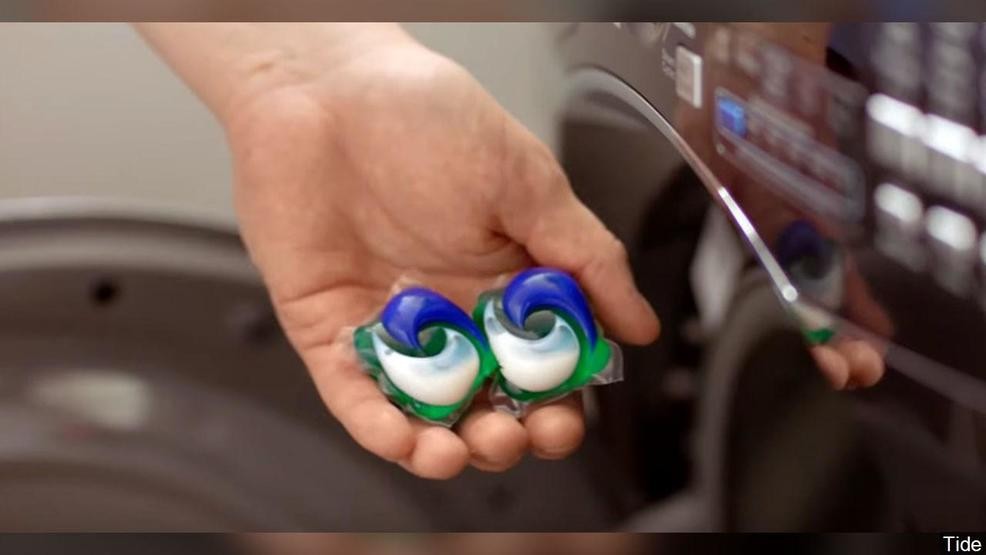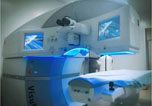- Over 55,000 LASIK and cataract procedures (including on over 4,000 doctors)
- The FIRST center in TN to offer Laser Cataract Surgery
- Introduced bladeless all-laser LASIK to the state
- Implanted the state's first FOREVER YOUNG™ Lens
- The first surgeons in the US to perform a new Intacs surgery to treat keratoconus
- Helped patients from 40 states and 55 countries
- International referral center for cataract surgery and LASIK complications
- Read Dr. Wang's book: LASIK Vision Correction
Why did you decide to have LASIK? Why did you choose Dr. Wang? How has your life changed since your LASIK procedure?
What is your advice for people considering LASIK?
Click to read more
| Home | Print This Page |
Middle Tennessee doctor warns of hidden dangers in laundry pods, detergents
by Adrian MojicaThursday, June 6th 2019


Photo: Tide via MGN
NASHVILLE, Tenn.--A Middle Tennessee doctor is warning consumers about the hidden danger of laundry pods and detergents.
Viral online challenges have previously highlighted the dangers of ingesting laundry pods but Dr. Ming Wang of the Wang Vision Institute says laundry detergents can pose a risk to those using them for their intended purpose.
Pods, powder, and liquid laundry detergents are "basic agents" says Dr. Wang, meaning they have higher alkaline levels. "Detergents have to have a ph of seven to eleven because they're meant to attach to clothing and pull from the clothing. Only higher alkalines do this and these can be the most damaging to the eye," Dr. Wang says.
That is a danger Dr. Wang is warning about when it comes to consumers and children handling laundry detergents in all of it's forms. If a pod breaks during handling or other types of detergent get on the skin, the skin is thick enough to protect the body, though there will be irritation. But if it comes in contact with the eye -say some splashes up into the eye or you forget to wash hands which have detergent on them, then it can pose long-lasting damage and even blindness.
"Because of the high ph levels, the detergents attach to the eye and keep eating away at one of the body's most-sensitive parts," Wang says. "You need to put your chin up to the sky and rinse with water for at least 15 minutes or until the pain stops then see a doctor immediately."
Following a chemical injury to the eye, scarring can take place on the cornea, meaning scarred areas will cause blind spots on the eye. As the scar grows, your vision increasingly is lost. Until recent years, patients with chemical injuries to the eye had little recourse other than cornea implantation. But a new science developed by Dr. Wang leads to the other reason he wants to reach out to consumers.
"Most people know they need to rinse immediately after eye injuries but not many know they need to see a doctor immediately and might be able to save their eyesight if they know where to turn," Dr. Wang says.
Following 20 years of work, the Middle Tennessee doctor has worked an ways to stop scarring on the eye and even reverse scarring. Thanks to placentas donated to his research lab after birth, Wang found a solution. "We know a fetus doesn't scar and that led us to wonder if maybe that was due to the placenta," Wang says.
He was able to develop what are called AMCLs, or contact lenses made of the amniotic sac. By placing them over the injured eye, it tricks the eye to think its in the womb and thus repair itself through regeneration just like a baby in the womb would.
Now used by thousands of doctors, Wang says knowing your options can make a life-long difference. "Someone who knows there's new technology out there can find a doctor and use it within hours of the injury. It can be the difference between saving your eyesight and blindness," Dr. Wang says.
Our new texbooks
A 501c(3) charity that has helped patients from over 40 states in the US and 55 countries, with all sight restoration surgeries performed free-of-charge.




















